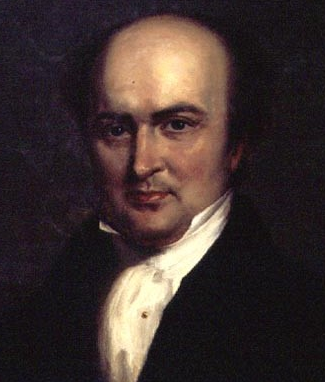The Volokh Conspiracy
Mostly law professors | Sometimes contrarian | Often libertarian | Always independent
Today in Supreme Court History
Today in Supreme Court History: September 4, 1851
9/4/1851: Justice Levi Woodbury dies.

Editor's Note: We invite comments and request that they be civil and on-topic. We do not moderate or assume any responsibility for comments, which are owned by the readers who post them. Comments do not represent the views of Reason.com or Reason Foundation. We reserve the right to delete any comment for any reason at any time. Comments may only be edited within 5 minutes of posting. Report abuses.
Please to post comments


Certain Named and Unnamed Non-Citizen Children and their Parents v. Texas, 448 U.S. 1327 (decided September 4, 1980): Powell restores District Court injunction against Texas law prohibiting state funds from being used to educate undocumented children; notes the open question of “strict scrutiny” as to plaintiffs’ Equal Protection argument; Texas in opposition points to increased expense of educating the children, and argues they they would suffer minimal harm because the law has already kept them out of school for five years anyway, but Powell says “the balance of harm weighs heavily on the side of the children” (the Court eventually ruled for them, sub nom. Plyler v. Doe, 457 U.S. 202, 1982)
Quoting from the dissent in the 5-4 substantive decision:
Congress eventually gave us the Immigration Reform Act of 1986, which recognized that it was not practical to deport everybody who legally ought to be deported. George W. Bush's attempted sequel failed due to lack of Republican support. Now our immigration policy is determined by balancing the whims of the president against the will of the most antagonistic District Court judge.
That little lecture by the dissent is somewhat tiresome.
Justice Powell joined the majority. It was not just Brennan and the liberals. It was not merely a matter of "standards of desirable social policy" but constitutional rules.
Sometimes, the judiciary steps in when the other branches fail. Justice Jackson recognized that in Brown v. Board of Education.
The situation now might be troublesome in certain cases but federal judges had a major role in immigration matters for quite some time. They were involved in cases involving Chinese immigration at the turn of the 20th Century, for instance.
Ahh, that's what the judiciary did with Dred Scott, Slaughterhouse, Plessey, and a whole swath of New Deal shenanigans, stepped in when the political branches failed to act.
Stepped in it, more like. Nothing noble about any of it. Everything to do with their own flavor of politics.
Justice Woodbury was a Polk nominee from New Hampshire.
He replaced Justice Story. Woodbury’s most well-known opinion in his short tenure followed Story’s Prigg v. PA ruling in granting a broad understanding of congressional power to enforce the Fugitive Slave Act as well as a limited role in restraining possible abuses.
Salmon Chase, the future Chief Justice, argued a broad anti-slavery constitutionalism in Jones v. Van Zandt. Woodbury replied:
Whatever may be the theoretical opinions of any as to the expediency of some of those compromises, or of the right of property in persons which they recognize, this court has no alternative, while they exist, but to stand by the constitution and laws with fidelity to their duties and their oaths.
As Robert Cover noted in his famous book, the “obligations” here were only so up to a point. Black people were “persons” as were the non-citizen children in Plyer v. Doe.
==
OTD in 2019, Alito referred a stay of execution regarding Billy Jack Crutsinger to the Court and it was denied. The writ for cert also was denied. Texas executed him later that day.
Woodbury is one of three individuals who served as a Supreme Court justice, a member of Congress, a Cabinet secretary, and a state governor, the others being Salmon Chase and James Byrnes.
As bonus inane trivia on protocol, in the U.S. order of precedence, Chief Justice is above Secretary of State, which is above Associate Justice, which is above other Cabinet positions. So, as Levi Woodbury was an Associate Justice as well as Secretary of the Navy and Treasury, he would be "Justice Woodbury" or "Mr. Justice", but James Byrnes, who was an Associate Justice and Secretary of State, would be "Secretary Byrnes" or "Mr. Secretary", giving each the honorific corresponding to his highest position in the order of precedence.
Though you might give John Jay an asterisk, since he was Chief Justice, Secretary of State, Governor of New York and served in the First and Second Continental Congresses. He was President of the latter, so in a sense he was President of the United States but with another, really big, asterisk. He was also an ambassador to Spain.